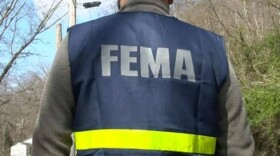PIEN HUANG, HOST:
Slide over, human judges. AI has entered the fold for the 2025 X Games in Aspen, Colorado. This is the first time AI is being introduced to snowboarding events, and it's a trial run. But it's expected to bring greater objectivity in scoring. Jeremy Bloom is with us. He's CEO of the X Games, and he's here to explain more. Welcome, Jeremy.
JEREMY BLOOM: Thank you. Good to be here.
HUANG: For those who are unfamiliar with the X Game scoring system, can you explain how human judges award their scores and how AI will be different?
BLOOM: Sure. It's based off the amplitude, based off the difficulty of the trick and the precision of the landing. Those are the three main categories of human judging, and we use those three main categories to program the AI as well.
HUANG: It sounds like you're saying AI is actually quite similar to how the humans are judging it?
BLOOM: Yes. When we were building and training the model, we put thousands of hours of snowboarding content into the model. We uploaded the exact criteria. And through that evolution, we gave it different prompts to sort of calibrate it to make sure that it was seeing those runs correctly.
HUANG: You've said that objectivity in scoring is one of the main goals here. I'm wondering how objectivity is lacking now.
BLOOM: You know, I come from the world of judged sports. I've been in it my whole life. I was a two-time Olympic skier for Team USA for freestyle, and so I've seen firsthand as a competitor, sometimes, you know, humans get it wrong. But also, as a former football player in the NFL, I also saw referees lose games for us.
HUANG: In this weekend's broadcast, the AI judge was represented by this owl with snow goggles that, you know, popped up on the screen as this automated voice talks through the score that it gave.
(SOUNDBITE OF ARCHIVED RECORDING)
AUTOMATED VOICE: I am giving that run an 84.75. It was the insane backside alley...
HUANG: One X Games fan on Reddit said that they were expecting stats and metrics about the tricks but saw instead a, quote, "cringy AI impression of an X Games announcer." So I'm wondering, what was the intended effect?
BLOOM: You know, people aren't always ready for change or think that change is a good idea. If you're somebody who really, you know, dreams of the future, of course not everybody is going to, you know, see those things as good ideas. Of course, you know, we'll listen, absolutely. We'll listen to our fans. And I can tell you the athletes here loved it, and they're so curious about it. They actually want to use it for coaching as well to have a second set of eyes on the hill to help them understand, you know, why did you judge it that way? And what could I do as an athlete to make that trick better? So our athletes are pretty fired up about it.
HUANG: I wanted to ask you about the athlete part of it. I mean, you're a former Olympic skier, professional football player, as you said. So of course, you know firsthand that judging an athlete's performance can be really difficult and complex, and the AI technology isn't perfect yet. Does that concern you, given that the stakes in competition can be really high for these athletes?
BLOOM: No, it excites me because I think this technology can see way more than the human eye. And the technology can index every run that's ever been done before. You know, we've had several leagues reach out now and are interested in using the owl across their sports and really excited to begin those conversations with other commissioners and other CEOs of other sport leagues to see how we could use our technology to help their athletes and teams as well.
HUANG: Jeremy Bloom is CEO of the X Games. Jeremy, thanks for joining us.
BLOOM: My pleasure. Thanks for having me. Transcript provided by NPR, Copyright NPR.
NPR transcripts are created on a rush deadline by an NPR contractor. This text may not be in its final form and may be updated or revised in the future. Accuracy and availability may vary. The authoritative record of NPR’s programming is the audio record.








